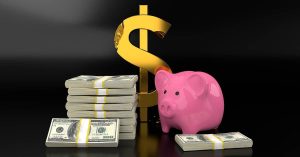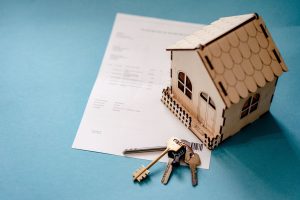During his presidential campaign, Joe Biden expressed support for partial student loan debt cancellation. Running during the first stages of the COVID-19 pandemic in 2020, Biden acknowledged the struggles of those with outstanding student loan debt, and how making continuous payments during the crisis might exacerbate their situation.
Three years on, his plan to forgive up to $20,000 in loan debt per student has been struck down by the Supreme Court. Though experts expected this ruling, hundreds of advocates still believe the Supreme Court made a hypocritical and incorrect decision, Biden included.
But how did we get to this point, and what does this ruling mean for students past, present, and future? In this article, we’ll be exploring Biden’s debt forgiveness plan and why it was never put into full effect. We’ll also take a look at how borrowers will be affected, and what you can do to plan effectively for the future.
The Road to The Supreme Court
The Beginnings
While campaigning in 2020, though he made no promises himself, Biden did endorse a proposal by Senators Elizabeth Warren and Bernie Sanders to forgive $10,000 of student loan debt per person. In a tweet, he stated “Young people and other student debt holders bore the brunt of the last crisis. It shouldn’t happen again.”
Despite no outright promises from Biden, he did begin to make good on debt forgiveness during his first year as POTUS. By January 2022, the government had already canceled $15 billion of student debt, benefitting 675,000 borrowers across the country. As 2022 wore on, Biden finally announced official plans to forgive student loan debt.
Putting the Plan into Action
On August 24th, 2022, the White House released its in-depth proposal for this debt forgiveness. Biden and the Democrats cited the skyrocketing cumulative loan debt of $1.6 trillion, and how federal support in pell grants and other financial aid systems remained at the same level it had been in 1981.
Biden instructed his education secretary to forgive up to $20,000 of loan debt per qualifying student. To do this, the Biden administration cited the HEROES (Higher Education Relief Opportunities for Students) Act of 2003, which allows the federal government to intervene in student loan plans in times of national emergency.
Initial Opposition
However, the $400 billion program was quickly rejected by state-run student loan programs in six states - Nebraska, Missouri, Arkansas, Iowa, Kansas and South Carolina. The states filed a joint complaint in the U.S. District Court in Missouri. A separate complaint was filed in Indiana, similarly seeking to block the loan relief plan.
The states claimed that without approval for the plan from Congress, they could not be made to forgive student loan debt. "No statute permits President Biden to unilaterally relieve millions of individuals from their obligation to pay loans they voluntarily assumed,” they claimed in their 36-page complaint. They also criticized his reliance on the HEROES Act, especially after he declared in 2022 that the pandemic was over.
Lower Court Ruling
U.S. District Judge Henry Autrey threw out the Missouri case, explaining that he did not feel the six states had significant legal standing necessary to block the plan. However, their case was quickly taken to the Court of Appeals on November 14th, 2022. Here a three-judge panel instructed Biden to put the plan on hold, issuing a nationwide injunction to block its implementation.
Solicitor General Elizabeth Prelogar stated that Secretary of Education Miguel Cardona was well within his rights to instruct state-run student loan programs to forgive the debt without approval from Congress. She continued that the only state with legal standing to oppose the plan was Missouri, and therefore a nationwide injunction was unjust. The administration quickly took the ruling to the Supreme Court.
The Final Ruling
After oral arguments were given on February 28th, 2023, Biden V. Nebraska was deliberated in the Supreme Court. Finally, on June 30th, 2023, the court ruled with a 6-3 majority that Biden’s debt forgiveness plan was unlawful.
The justices concluded that the HEROES Act did not give rights to Cardona to ‘waive or modify’ laws relating to loan terms, and the act could not be extended to loan forgiveness. The $400 billion scale of the plan was also cited, as such a large impact on the federal reserve would require Congressional approval.
Biden quickly commented on the hypocrisy of this ruling, stating “[Republicans] had no problem with billions in pandemic-related loans to businesses — including hundreds of thousands and in some cases millions of dollars for their own businesses. And those loans were forgiven. But when it came to providing relief to millions of hard-working Americans, they did everything in their power to stop it.”
What Can Borrowers Expect Moving Forward
As Congress agreed in June not to extend the payment pause on student loans, interest payments will resume on September 1st and repayments will be due in October.
However, by the afternoon of June 30th, 2023, the Biden administration had already taken three alternative steps to provide student debt holders with the relief they need:
- The administration has now turned its attention to the 1965 Higher Education Act for legal remit to provide debt relief without Congressional approval. A rule-making process was initiated by Secretary Cardona, meaning subsequent legislation may not be too far away.
- In the meantime, many borrowers will have their payment structures reorganized in their favor, as the Department of Education has finalized “the most affordable repayment plan ever created.” The Saving on a Valuable Education (SAVE) plan went into immediate effect and is estimated to provide relief of up to $1000 a year.
- To counteract the effects of the original plan being struck down, the DoEd is instituting an ‘on-ramp’ to repayment that will last 12 months from October 1st, 2023. During that time, any late repayments will not be considered delinquencies, and those who have missed payments will not be placed in default or referred to debt collection agencies.
Despite these steps, many advocates are still apprehensive about how borrowers will be affected moving forward. Ethan Miller, a financial planner and founder of Planning for Progress stated that the aftereffects of the pandemic and rising inflation will have a “detrimental effect” on borrowers as a result of the ruling. “For some folks, it will require some hard choices, and for other borrowers, it is going to require a fundamental reimagining of their finances,” he explained.
Tips to Deal With Student Loan Debt Effectively
The Supreme Court’s ruling has highlighted the importance of financial planning for those taking on student debt. With uncertainty regarding the extent of future debt forgiveness plans, borrowers need to explore alternative options to manage their debt obligations. Some tips for current and future borrowers include:
-
Consider Income-Driven Repayment Plans
Income-driven repayment or income-contingent repayment plans calculate monthly payments based on your adjusted gross income (AGI). You’ll only pay 20% of your AGI for 25 years, after which the remainder of your debt will be forgiven. Pay-as-you-earn plans are another alternative, which caps monthly payments at 10% of your monthly income for 20 years. There are stringent criteria you will need to meet to qualify for these plans, so get in contact with your loan service early and discuss your options. Or, try this site to simulate potential loan repayment plans.
-
Explore Other Debt Forgiveness Options
Certain circumstances mean part or all of your student debt can be forgiven. If you are unable to work, your school closed before you finished your qualification, paying your student loans will lead to bankruptcy, or if you have been working in a public service profession you may be able to lower your overall debt. Again, there is a long application process and often very strict criteria to have your debt partially or totally forgiven, so contact your loan service to find out whether it’s worth pursuing.
-
Ensure Timely Payments with Auto-Debit
Auto-debit will automatically debit your account with your repayment amount. This can be helpful if you tend to procrastinate or forget to make payments. Auto-debit will help you avoid late fees and delinquencies, however, it will require you to budget more carefully at the start of every month to make sure you have enough money left once repayments are made. Though it is convenient and reliable, auto-debit goes hand in hand with financial discipline and accountability.
-
Review or Open a Savings Account
Savings accounts tend to have much more favorable interest rates than normal bank accounts. This is especially true with high-yield savings accounts. Opening a high-yield savings account, whether you are just about to take your student loan or are just about to start making repayments, can help you budget and get more for your money over time.
In Conclusion…
The recent Supreme Court ruling over Biden’s student loan forgiveness plan will have a significant impact on borrowers once repayments resume in October. This has left borrowers who were relying on debt forgiveness with many uncertainties and challenges.
While the administration is taking further steps to lessen the burden for borrowers, moving forward, effective financial planning is crucial. You may need to explore alternative repayment plans, consider income-driven options, and investigate potential debt forgiveness programs. Furthermore, timely payments through auto-debit and opening a high-yield savings account can assist you in managing your debt effectively and avoiding repercussions.
The road ahead will require careful financial decisions as we navigate the aftermath of the Supreme Court ruling. However, all is not lost, and there may be some help in the future by way of mass debt forgiveness from Biden’s administration. For now, it’s prudent to behave as if no debt forgiveness will be made and get in contact with your loan service as soon as possible to ensure you can make your full payments on time.
Sources
- https://money.com/biden-student-loan-forgiveness-promise/
- https://www.forbes.com/sites/zackfriedman/2022/01/26/biden-has-cancelled-15-billion-of-student-loans/
- https://www.forbes.com/sites/zackfriedman/2022/01/27/no-biden-didnt-promise-to-cancel-everyones-student-loans/
- https://www.whitehouse.gov/briefing-room/statements-releases/2022/08/24/fact-sheet-president-biden-announces-student-loan-relief-for-borrowers-who-need-it-most/
- https://www.nbcnews.com/politics/politics-news/six-gop-led-states-sue-biden-administration-student-loan-forgiveness-p-rcna50024
- https://www.scotusblog.com/2022/11/biden-administration-asks-justices-to-revive-student-debt-relief-plan-after-lower-court-blocked-it/
- https://www.scotusblog.com/2023/06/supreme-court-strikes-down-biden-student-loan-forgiveness-program/
- https://en.wikipedia.org/wiki/Biden_v._Nebraska
- https://www.cnbc.com/2023/06/30/supreme-court-biden-student-loan-forgiveness-plan.html
- https://www.whitehouse.gov/briefing-room/statements-releases/2023/06/30/fact-sheet-president-biden-announces-new-actions-to-provide-debt-relief-and-support-for-student-loan-borrowers/
- https://www.cnbc.com/2023/06/30/how-the-supreme-courts-decision-may-affect-student-loan-borrowers.html
- https://www.cnbc.com/2023/07/03/some-steps-student-loan-borrowers-can-take-following-supreme-court-ruling.html
- https://www.investopedia.com/articles/personal-finance/082115/10-tips-managing-your-student-loan-debt.asp



















Add comment